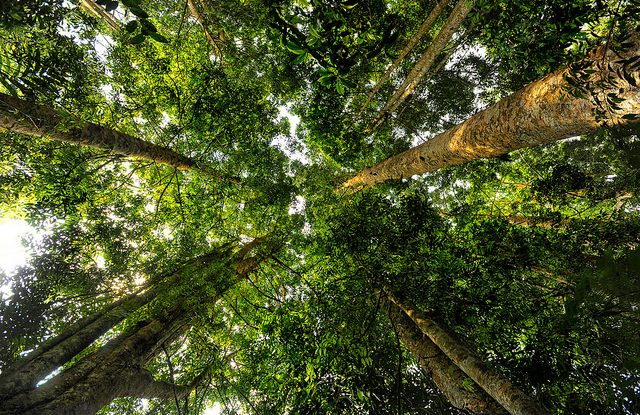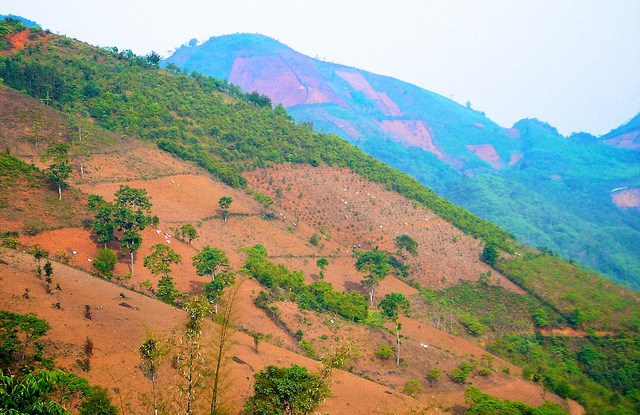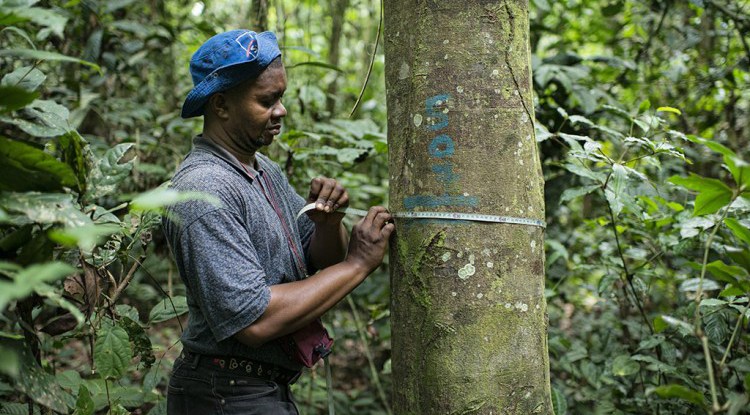The landmark Paris climate change agreement was adopted by 195 nations – all pledging to keep global warming well below 2°C.
But many of the decisions, actions and outcomes on climate change are actually made by non-state actors such as local governments, multinational corporations, civil society organizations, indigenous peoples, smallholders and small- and medium-scale enterprises (SMEs).
Five experts from the Center for International Forestry Research (CIFOR) examined the role of non-state actors at a CIFOR-led side event at the COP22 in Marrakesh, Morocco, on 10 November.
The panelists discussed the challenges and opportunities for these actors, particularly the private sector, to contribute to the achievement of nationally determined contributions (NDCs). They also looked at the importance of independent and transparent monitoring to verify whether commitments are met, and the role of the private sector in meeting them.
A WORD TO THE WISE
Under the Paris Agreement, more “non-state actors” (NSAs) are included in United Nations Framework Convention on Climate Change (UNFCCC) initiatives. But using this term for such a wide-ranging group presents challenges since non-state actors are as diverse as their motivations and actions.
“There are many diverse groups that fall within the non-state actors category, all playing different roles in commitments to climate change, including companies, civil society, academia, NGOs, smallholders and indigenous peoples,” said Pablo Pacheco, a principal scientist at CIFOR.
“Even the private sector is very heterogeneous, comprising diverse sub-groups with different priorities and capacities, some of which are operating within informal economies,” he added. “So monitoring progress among this diverse group of actors is complicated.”
Pacheco and his colleagues emphasized that there cannot be a ‘one-size-fits-all’ approach to non-state actors and urge the UNFCCC to address this issue.
KEEPING PROMISES
In 2014, the UNFCCC launched the Non-State Actor Zone for Climate Action (NAZCA) portal, which tracks actions that are helping countries achieve and exceed their national commitments to address climate change.
To date, more than 12,500 commitments have been made by corporations, investors, CSOs, cities and regions.
During the COP21 in Paris, this platform evolved into a more formal arrangement through the Global Climate Action Agenda, which has played a key role at COP22 in Marrakesh.
CIFOR scientists have found that although many international corporations have made voluntary commitments to reduce their negative environmental and social impacts in the agriculture and forestry sectors, there is still no systematic way to track and verify these pledges, or their impacts on climate change.
“These companies have self-reporting systems, but there remains issues of credibility, transparency and independence,” said Pacheco.
“It is important to have independent monitoring. There also needs to be awareness of the potential and limits of pledges by NSAs, because often, they don’t have specific targets and timeframes.”
Pacheco pointed out that there are a number of organizations, such as the World Resources Institute (WRI) and Global Forests Watch that monitor aspects of climate change, while other groups monitor trade flows and investments, including financial risk.
While it is important to have these diverse initiatives, Pacheco believes that a common definition of metrics and indicators is necessary.
“When it comes to monitoring, it is good to have diversity, but we need to discuss what needs to be monitored and how to do it transparently,” he said. “Not only at the global level, but also at the local level in ways that make sense for all the different stakeholders.”
FINDING COMMON GROUND
CIFOR scientists identified a major risk for smallholders and other local people who are marginalized and operate within informal economies. They argue that these actors face the risk of being excluded due to corporate attempts to build ‘deforestation-free’ supply chains. This not only impacts rural communities, but the environment as well.
To remedy this, better UNFCCC safeguards are required. “In spite of their risks, corporate commitments also have the potential to support smallholders and leverage resources to help them to uptake more sustainable practices,” said Pacheco.
One way to do this would be through the Green Climate Fund (GCF), according to Pacheco. 194 governments in 2010 established the fund to help developing countries formulate programs and policies that would help them mitigate and adapt to climate change.
These commitments, in spite of their risks of excluding certain suppliers, could be used to support smallholders and small and medium enterprises (SMEs) to upgrade their production systems and, therefore, to be able to compete and benefit from sustainable supply chains.
“We need to bring these resources to more disadvantaged players to help them gain access to tenure rights, proper loans and financing,” said Pacheco.
“For example, if a company pledges not to buy from smallholders who are encroaching on forested land, these people will no longer have a source of income. So we need to engage them in the forestry market, provide better more efficient agricultural methods, provide resources and create alternative livelihoods.”.
Pacheco said SMEs would eventually need to get on board and be included in the monitoring process. He said a multi-stakeholder approach is needed that takes into account local diversity and values that do not disempower small suppliers.
“Many companies are clashing with informal economies, so we need to find ways to formalize these processes,” he said. “I think regularizing tenure rights and finding resources for these marginalized people is key.”
Pacheco added that initiatives stemming from the private sector need to be linked to governments, especially when it concerns land tenure and planning.
During the panel, CIFOR scientists argued that there is more than enough justification for the UNFCCC to develop guidelines that will assist engagement with non-state actors in climate mitigation and adaptation actions in a socially and environmentally responsible way to implement the Paris Agreement.
They say this could be done through information to be included in NDCs and through the modalities under negotiation to enhance the UNFCCC Transparency Framework. Voluntary commitments through transparent processes that are open to wider society are also needed. Finally, indigenous groups, including women, also need to be included in the process.
We want you to share Forests News content, which is licensed under Creative Commons Attribution-NonCommercial-ShareAlike 4.0 International (CC BY-NC-SA 4.0). This means you are free to redistribute our material for non-commercial purposes. All we ask is that you give Forests News appropriate credit and link to the original Forests News content, indicate if changes were made, and distribute your contributions under the same Creative Commons license. You must notify Forests News if you repost, reprint or reuse our materials by contacting forestsnews@cifor-icraf.org.


